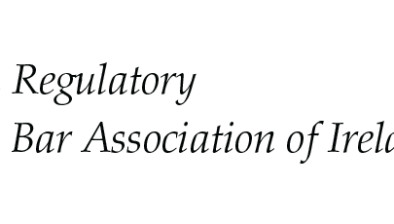High Court: Financial services company alleging pressure to mis-sell financial products granted injunction against EBS
A financial services company alleging that a Termination Notice of its Tied Agency Agreements with EBS was as a result of its refusal to succumb to “pressure” from EBS to “mis-sell financial products”, has been granted an injunction in the High Court.

About this case:
- Citation:[2019] IEHC 74
- Judgment:
- Court:High Court
- Judge:Mr Justice John Jordan
Finding that there was a bona fide and fair and serious issue to be tried, and that damages would not be an equitable remedy, Mr Justice John Jordan was critical of EBS’s failure to offer an alternative reason for the Termination Notice.
Pressure to mis-sell financial products
The Plaintiff, Betty Martin Financial Services Limited, is a Tied Agent of EBS, having entered into three separate Tied Agency Agreements in respect of EBS Branches in Athlone, Longford and Lucan.
The Plaintiff sought an interlocutory injunctive relief as a result of EBS d.a.c having served a “Notice of Termination of the Tied Agency Agreements” in February 2018.
The Plaintiff asserted that the reason behind the Termination Notice was its refusal to fall in with “encouragement” from or “pressure “ exerted by a Senior Official of EBS “to mis-sell financial products” and to engage in unlawful selling practices contrary to regulatory obligations under the Consumer Protection Code.
EBS denied these claims, and Mr Justice Jordan said that although he need not decide where the truth lies, he was “driven to the conclusion” that this was a serious issue forming part of the full hearing.
EBS “relied heavily” on the AIB Group Internal Report, regarding which Mr Justice Jordan said he could not understand:
- How it could be afforded the stature EBS sought when the Court was only given an executive summary;
- How it could be “impartial and independent” when it was prepared by AIB Special Investigations Unit;
- Why the issues of disparity between Irish Life’s views and those of EBS and under the heading of mis-selling were “dispatched in such a cavalier fashion in the summary” when it was the core of the plaintiff’s assertions;
- How an affidavit submitted on behalf of EBS could state that Irish Life concluded that there was no evidence to support the mis-selling allegations made given the disparity of views referred to in the executive summary
Move along, there is nothing to see here
Mr Justice Jordan noted EBS’s assertions that the plaintiff’s allegations only materialised after the first Termination Notice in May 2017 but said that he was not persuaded that the issues came as a ‘bolt out of the blue’. Mr Justice Jordan noted that EBS advanced “no reason whatsoever” as to why the first termination notice was served.
Noting that no allegations had been made beforehand, Mr Justice Jordan said that EBS’s submissions portrayed a situation where “EBS simply decided to oust the Plaintiff from three successful branches and to replace it with a new agent in each so that business would continue as normal”, that he was being told to “move along…there is nothing to see here”.
While there was a clause in the Agreements concerning termination without a reason being given, Mr Justice Jordan said this did not negate the need for the court to look for some explanation given the background averred to by the plaintiff – he said he could find no reason other than that advanced by the Plaintiff.
On the test to be applied when considering an application for an interlocutory injunction, Mr Justice Jordan said it was “clear… that to that to satisfy the requirement that there is a fair question to be tried, the threshold to be surmounted is generally recognised to be low”. (Campus Oil Limited v Minister for Industry and Energy [No.2] 1983 IL; B&S Ltd v Irish Auto Trader Ltd.[1995] 2 IR 142; Okunade v Minister for Justice [2012] 3 IR 88; AIB v Diamond [2012] 3 IR 570; Shelbourne Hotel v Torriam Limited [2010] 2 IR 52; and Dowling v Minister for Finance [2013] 4 IR 576 considered)
Bona fide or fair and serious issue to be tried
Noting that the Termination Notice was the second of two such letters, and the message conveyed in February may have been a repeat of the earlier letter, Mr Justice Jordan found that the Termination Notice was defective because it did not refer specifically to the three separate Tied Agency Agreement, and that a bona fide or fair and serious issue did exist on this point
Mr Justice Jordan said there was a fair and serious issue to be tried on each of the following arguments regarding the Termination Notice:
- It was served in breach of a collateral agreement that the Tied Agency Agreements would not be terminated without sufficient cause;
- It was invalid because it was served capriciously and without a bona fidecommercial reason;
- It was served in breach of an implied term that EBS would not terminate the Tied Agency Agreement because the Plaintiff refused to mis-sell investment, savings and insurance related products and/or complained about the pressure applied to do so.
Stating that the plaintiff’s loss was likely to be significant and not easily quantifiable, Mr Justice Jordan said that if the plaintiff were to be ousted as EBS intended then its business would be gone – therefore damages were not an equitable remedy.
Mr Justice Jordan said he had “little doubt” that the balance of convenience lay in favour of granting the Interlocutory Relief sought. He said that there was “no convincing evidence that the Plaintiff’s continued operation of all three branches between now and the full hearing of the action will not continue to reap at least the same rewards for both sides as they always have”.
Mr Justice Jordan said it was “an understatement” to say he was “less than satisfied” by the evidence of EBS concerning damages suffered if Interlocutory Relief were to be granted and the plaintiff’s action failed after a full hearing. He said he was “even less satisfied” by the evidence concerning the inadequacy of an award of damages in that regard.
Accepting that the Martin’s honestly felt it would not come to this and would have acted sooner otherwise, Mr Justice Jordan also said that it would be unfair and inequitable to refuse the relief sought on the grounds of delay.
Finding that the least risk of injustice could only lie in granting the Interlocutory Relief sought, Mr Justice Jordan said it would be unjust not to do so
As an aside, Mr Justice Jordan encouraged the parties to seek mediation, stating that banks and financial institutions should “lead by example” by working together to move on with a positive attitude and help rebuild the trust, confidence, and faith the public should have in these institutions. Mr Justice Jordan said this “may be a high minded and naïve recommendation” on his part, but said it was something he urged on both sides.
- by Seosamh Gráinséir for Irish Legal News








